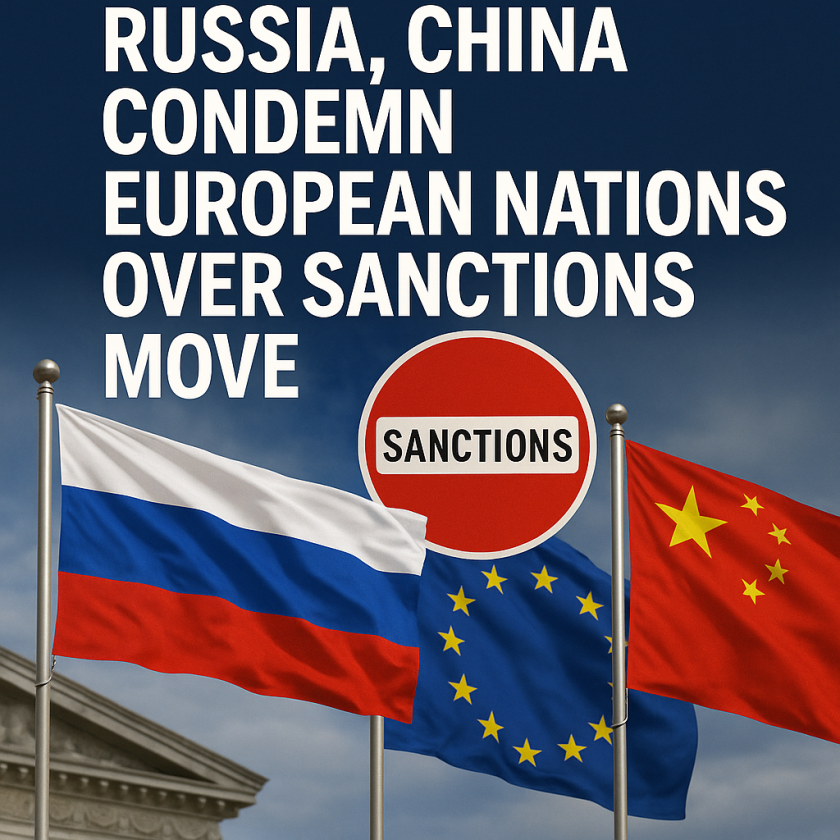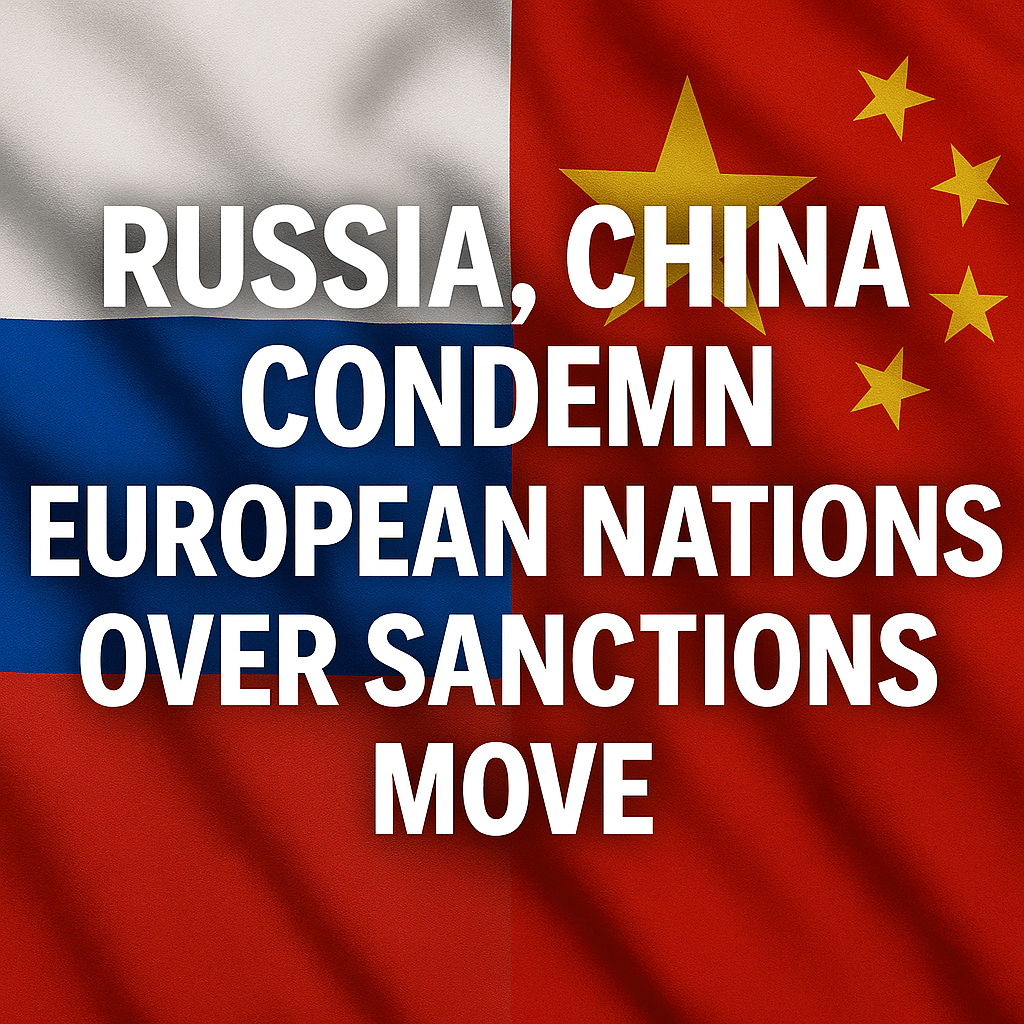Russia, China Condemn European Nations Over Sanctions Move
Russia and China Condemn European Nations Over Sanctions Move
Russia and China have taken a unified stance in condemning the recent sanctions imposed by European nations, particularly concerning the new measures targeting Iran. This response reflects not only geopolitical tensions but also broader questions about international relations and the balance of power.
Context of the Sanctions

The latest sanctions from European nations come as a reaction to Iran’s activities, which have raised concerns among Western powers. According to Al Jazeera, the sanctions are part of a broader strategy to curb Iran’s nuclear ambitions and regional influence. Specifically, European nations are responding to what they allege is Iran’s failure to adhere to obligations under international agreements.
However, Russia and China argue that these measures are unilateral and violate established norms of international law. They characterize the sanctions as a form of coercion that undermines diplomatic efforts aimed at achieving stability in the region. This perspective highlights a significant divide in global governance, wherein Western policies are often viewed through a lens of moral imperative while countries like Russia and China advocate for sovereignty and non-interference.
The Diplomatic Standoff
RT reports that in response to the sanctions, both Moscow and Beijing have reiterated their commitment to uphold international law and maintain a collaborative approach to resolving such conflicts. They argue that sanctions, particularly those imposed without the consensus of the United Nations Security Council, weaken diplomatic frameworks. Furthermore, Russian Foreign Ministry spokeswoman Maria Zakharova critiqued European nations for seemingly bypassing dialogue, suggesting that sanctions threaten peace and escalate tensions.
The diplomatic language used by both nations demonstrates their attempt to position themselves as defenders of global stability. In doing so, they not only aim to consolidate political alliances but also seek support from nations that share their skepticism toward Western-led sanctions. The new sanctions could further alienate countries that are already cautious about aligning with Western policies.
Perspectives on Global Stability
The imposition of sanctions is a contentious issue that reflects deeper ideological divides. According to analyses from Sky News, European nations insist that the sanctions are necessary for national and regional security, framing them as a deterrent against hostile actions by Iran. The European Union’s stance illustrates a parental oversight approach—emphasizing accountability, but often at the expense of broader dialogue.
Conversely, the arguments presented by Russia and China indicate a growing concern about the over-reliance on sanctions as a foreign policy tool. Both nations underline the potential negative repercussions on global stability, such as the exacerbation of conflicts and the breakdown of international relations. They advocate for a more balanced approach, emphasizing diplomatic channels over punitive measures.
Uncertainties and Future Implications
This latest episode in international relations reflects more than just a dispute over sanctions; it underscores the complexities of modern diplomacy. There are uncertainties regarding how these tensions will evolve in the coming months. Will European nations persist in their sanction policies, or will they seek to engage more directly with Iran to de-escalate the situation? Likewise, can Russia and China leverage this moment to garner support among other disenchanted nations or groups, thus shaping a different narrative about sanctions and diplomacy?
As both sides dig in, it remains crucial for the international community to engage in meaningful dialogue to address the underlying issues at play. The potential for miscalculation could lead to significant consequences, including geopolitical instability and new conflicts.
Conclusion
The condemnation of European sanctions by Russia and China shines a light on the shifting dynamics of global influences. As advanced economies grapple with their security concerns, countries advocating different perspectives such as Russia and China are increasingly vocal about their opposition to sanctions. The ensuing discussions will likely set the tone for future international relations and underscore the need for robust diplomacy that prioritizes dialogue and understanding over punitive measures.






































